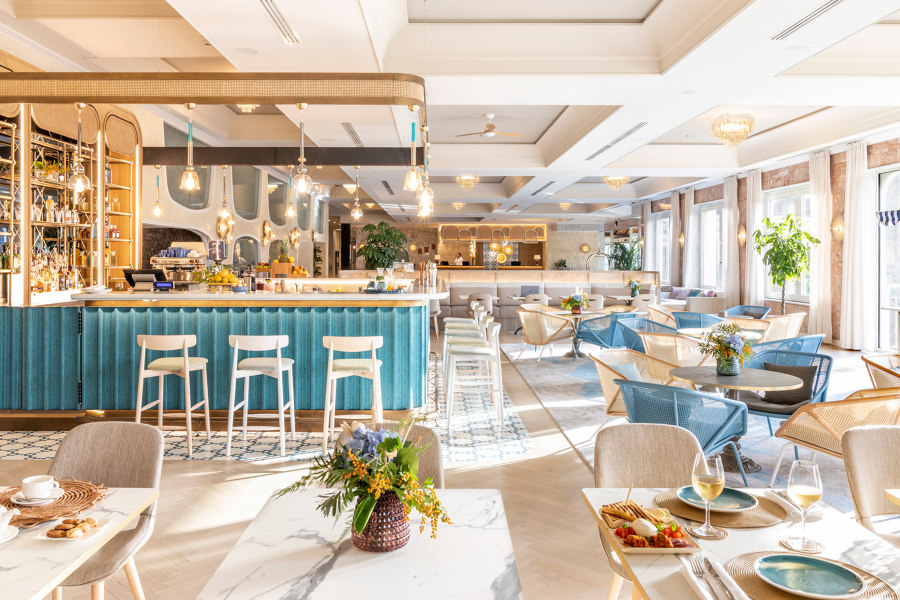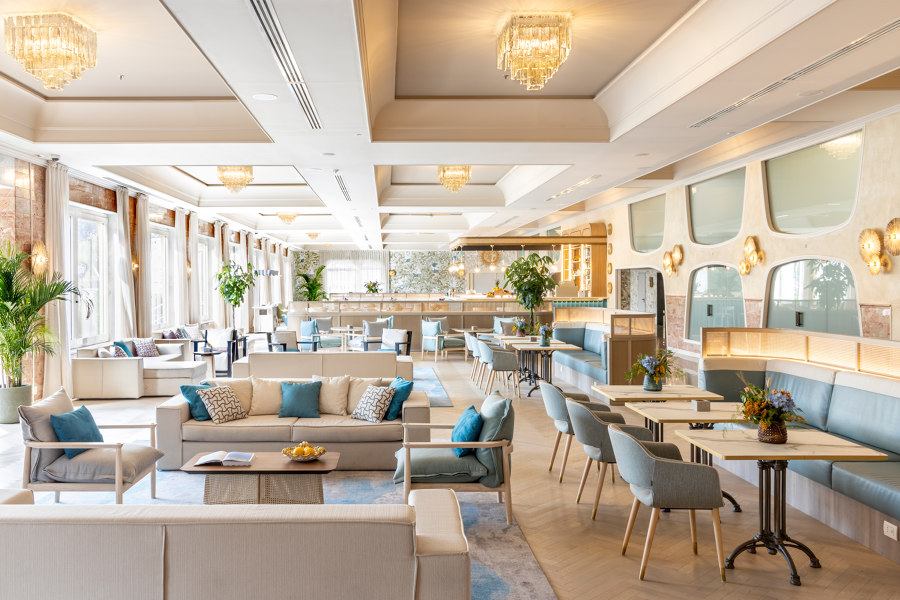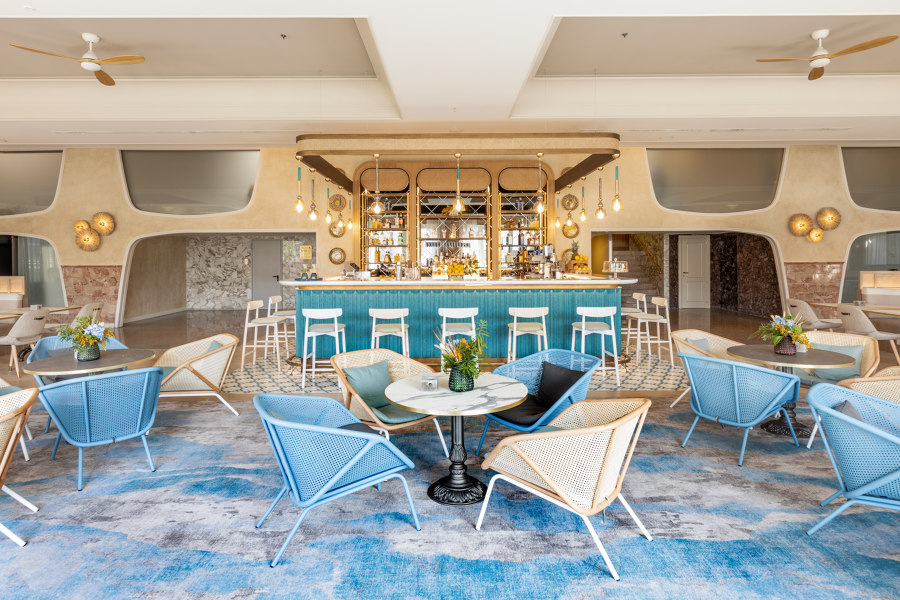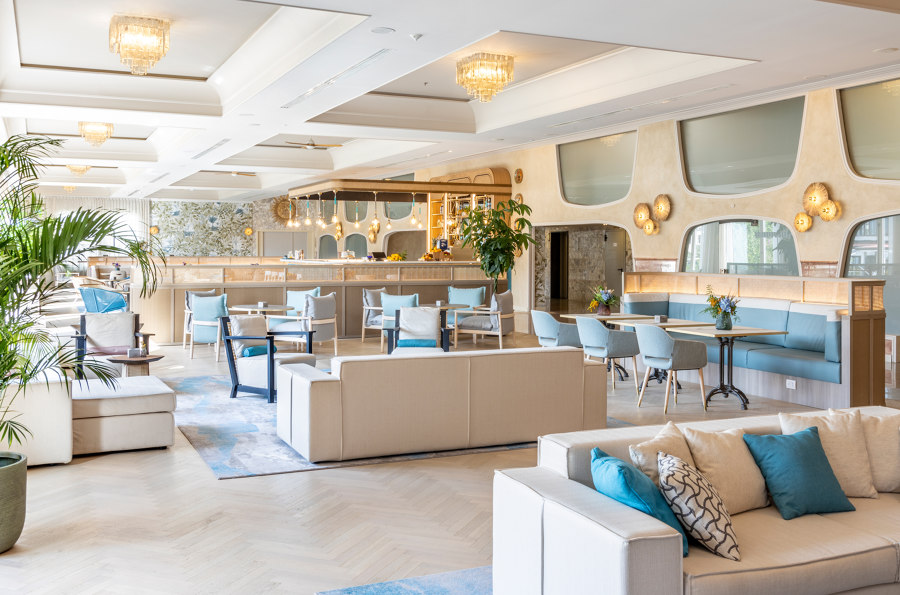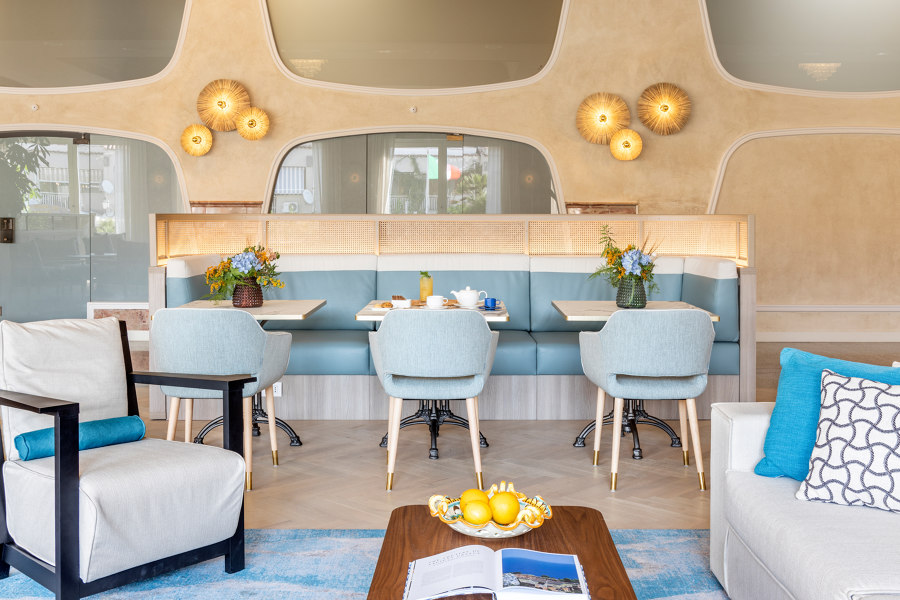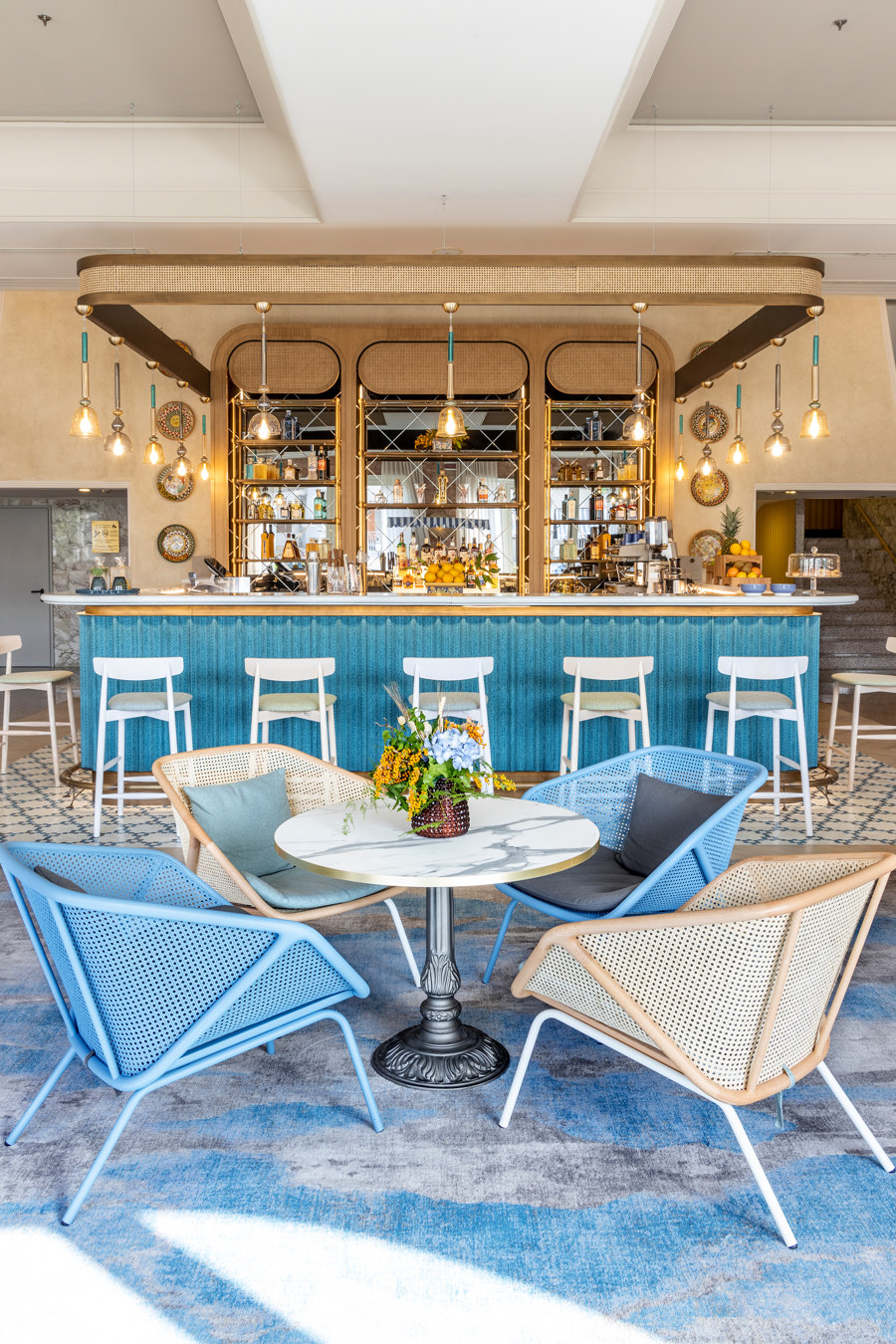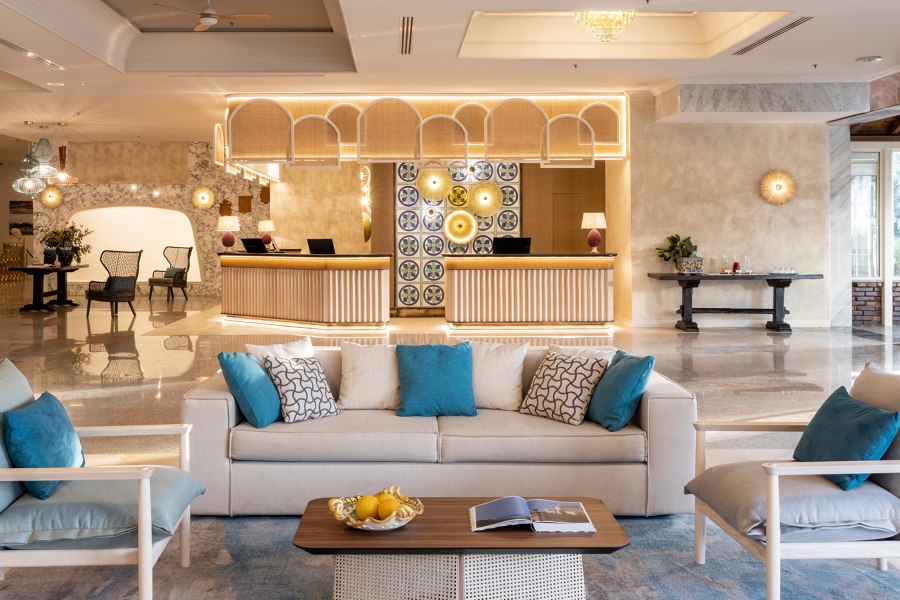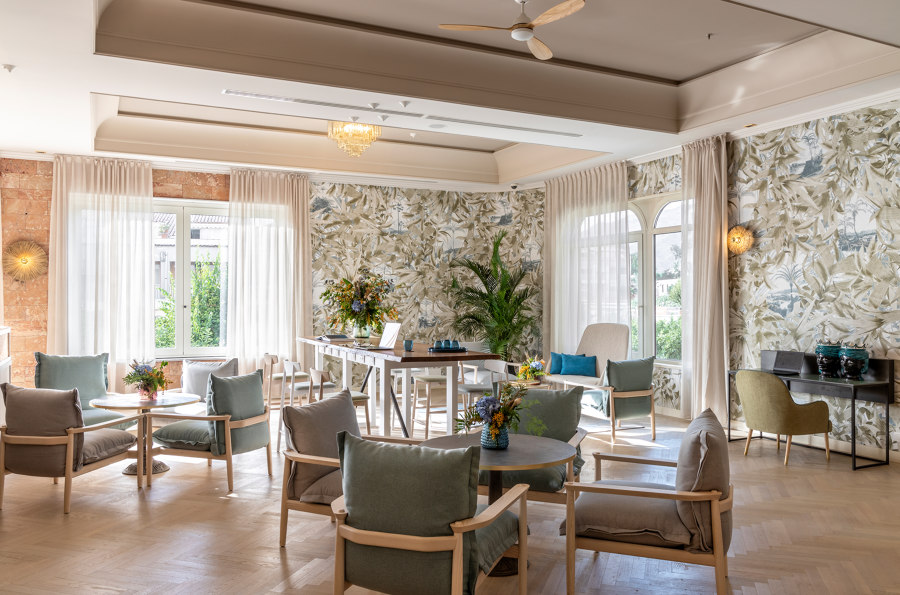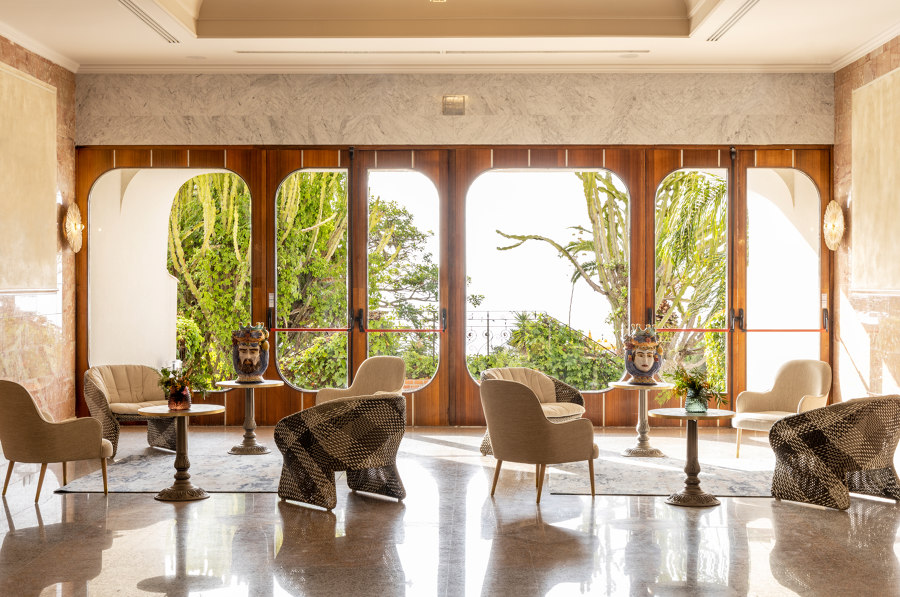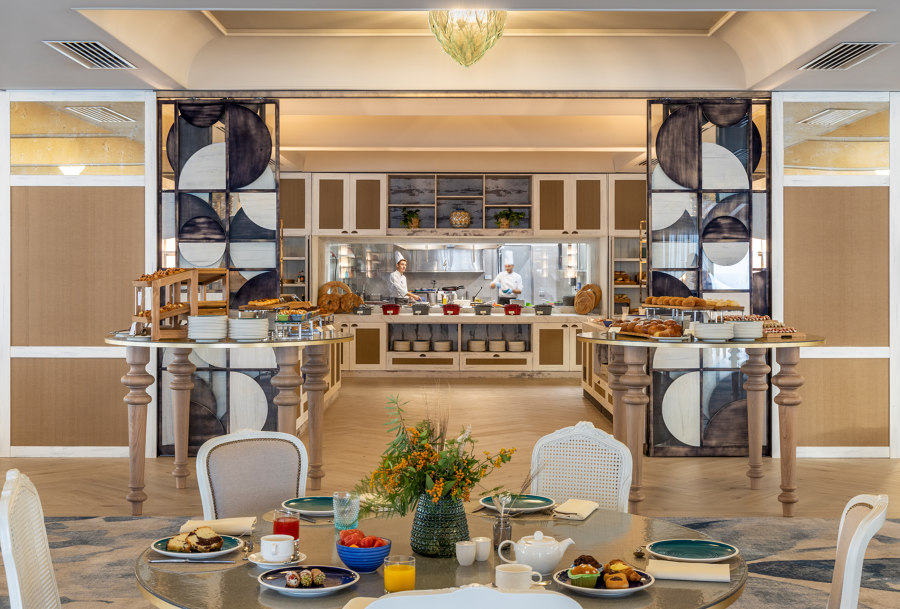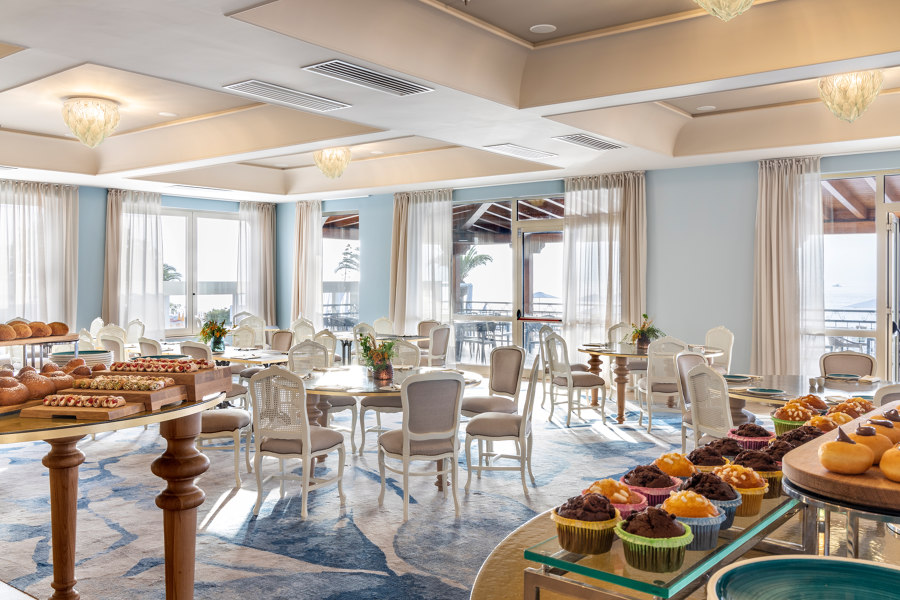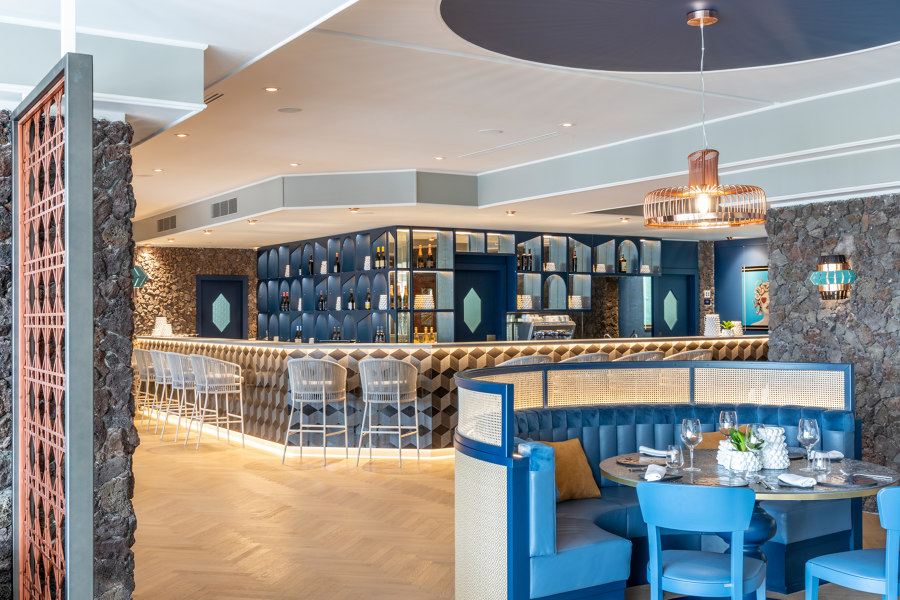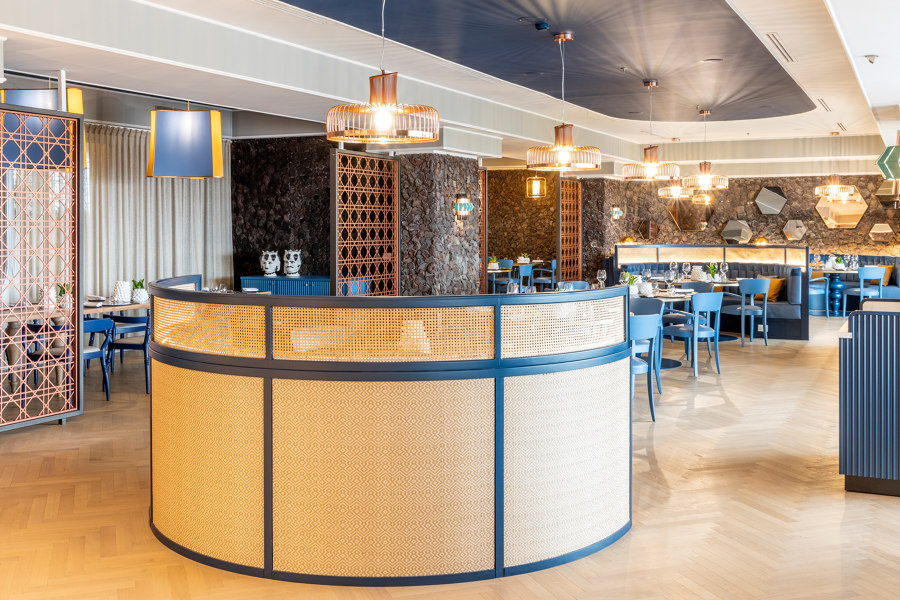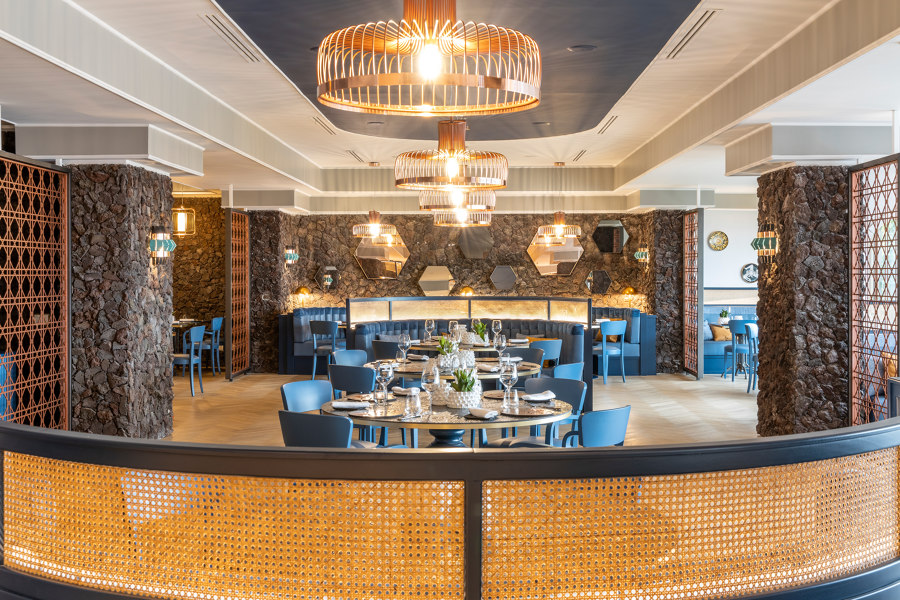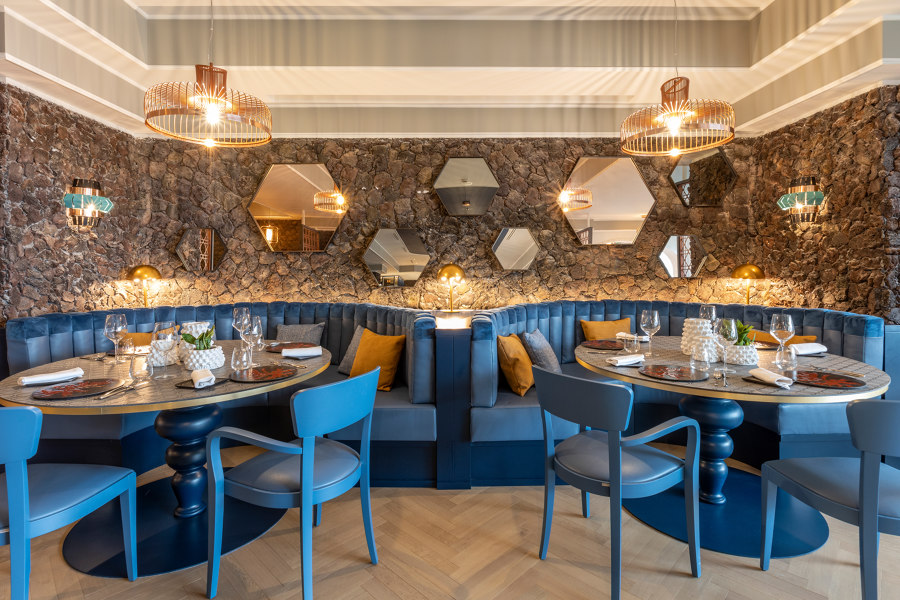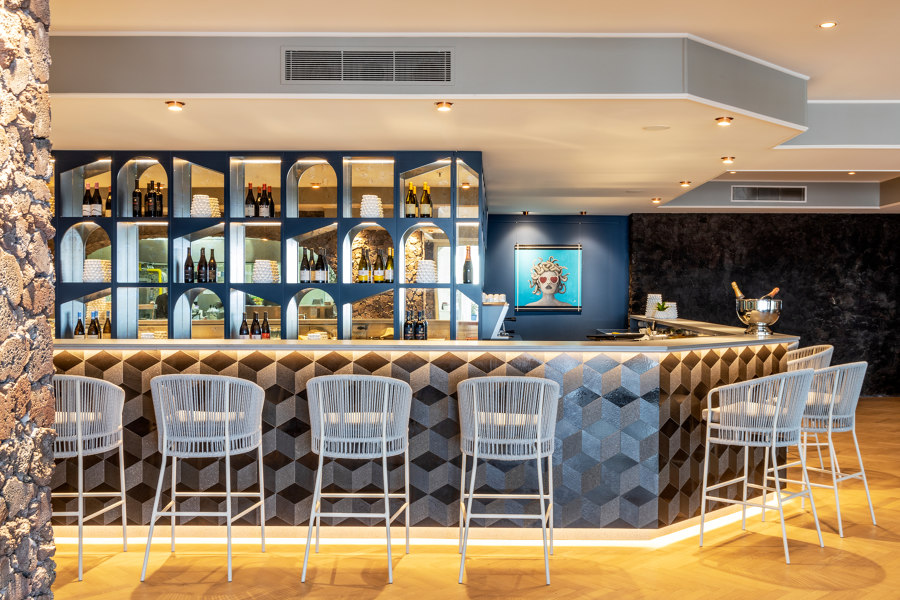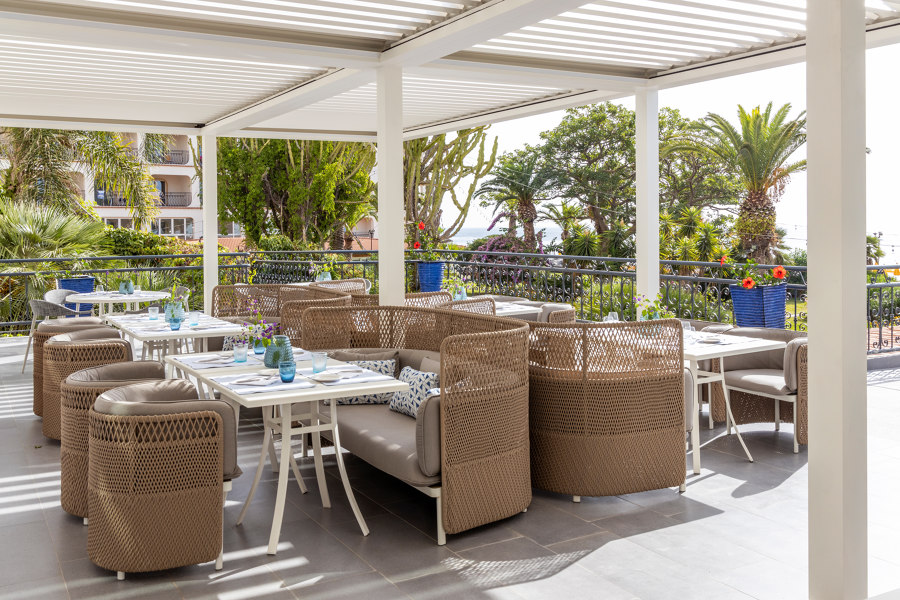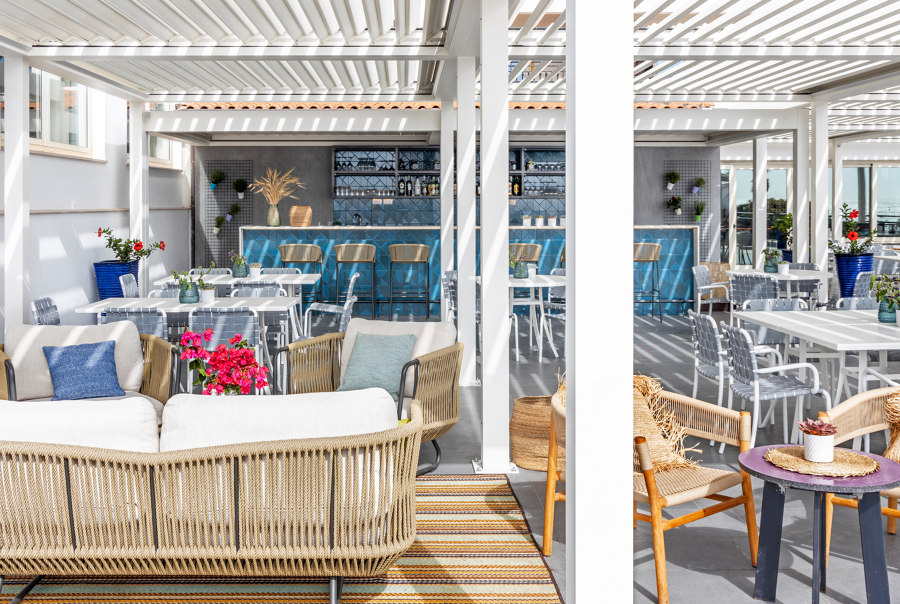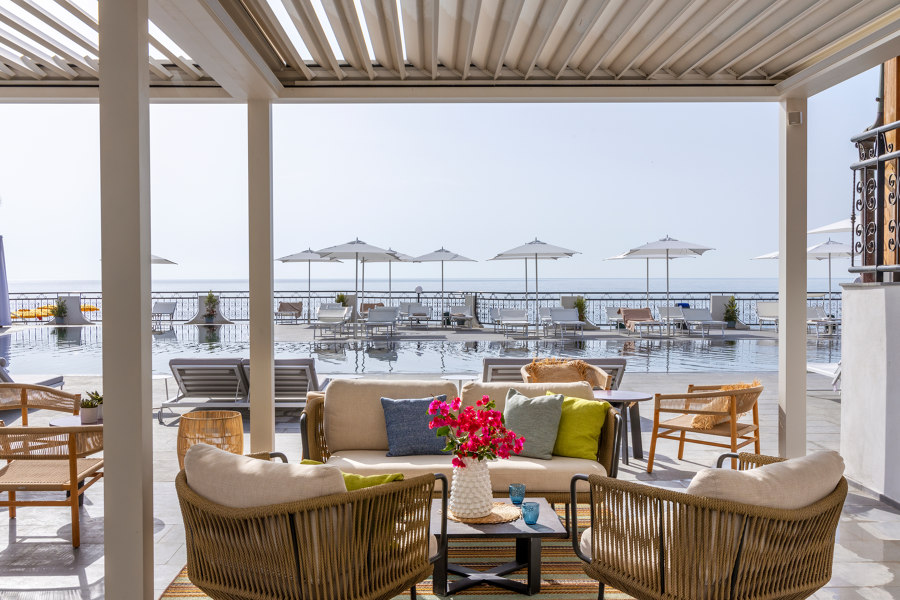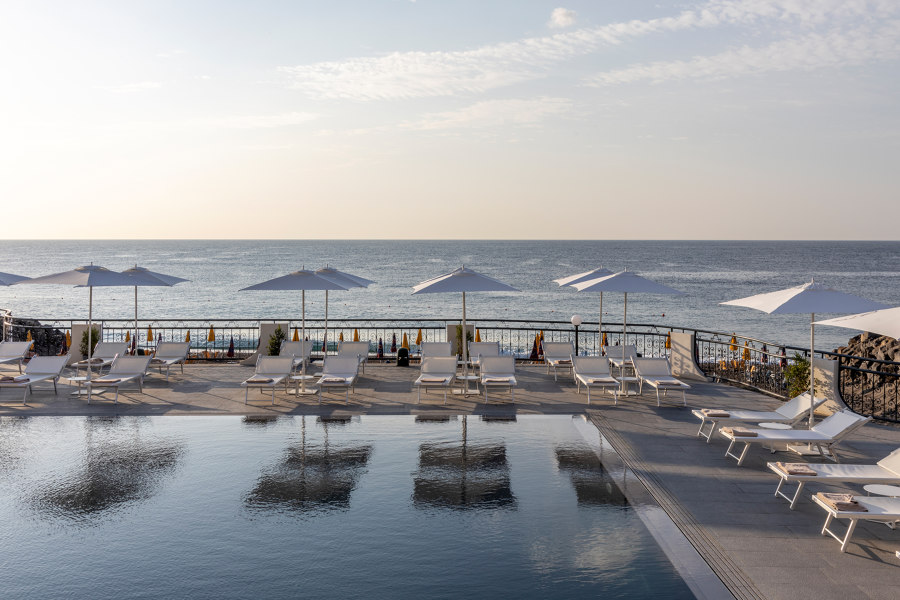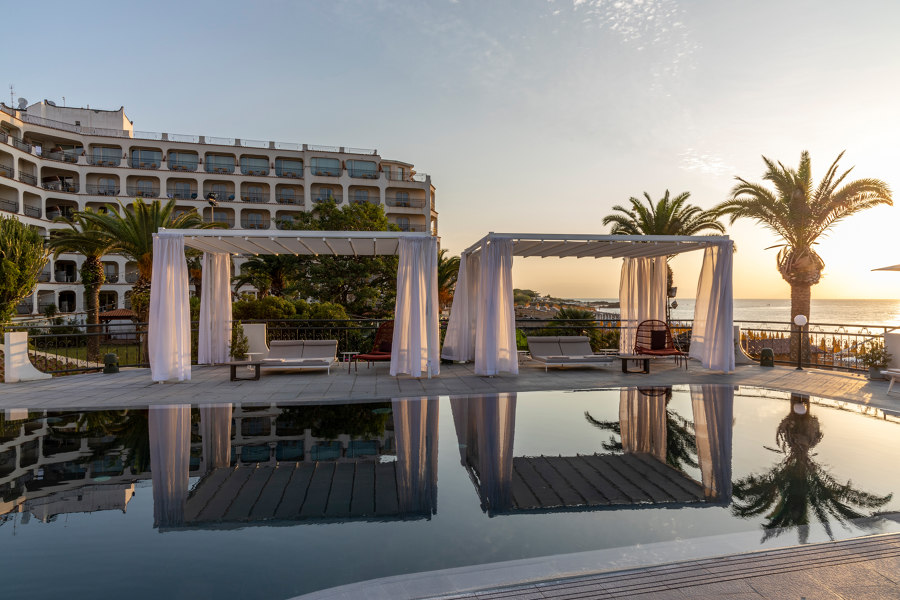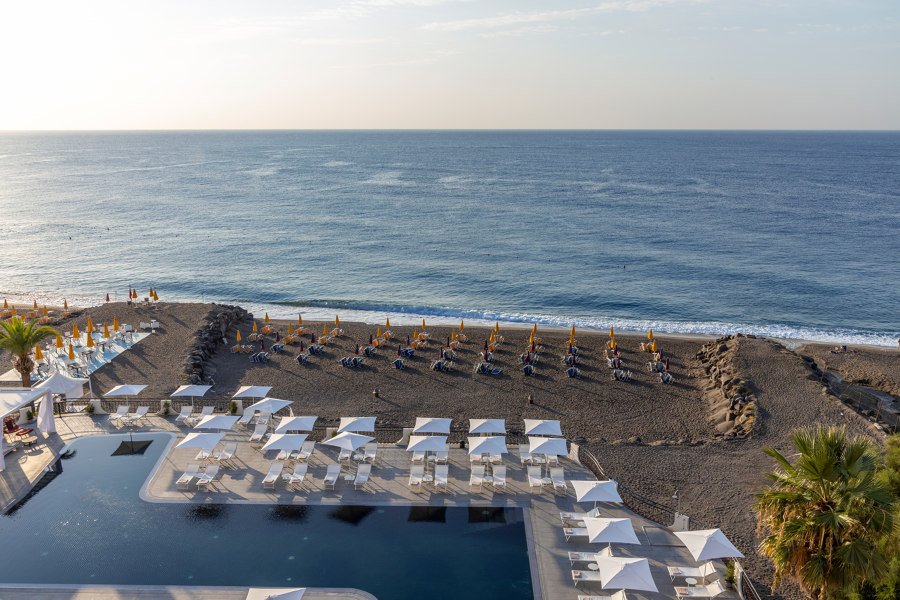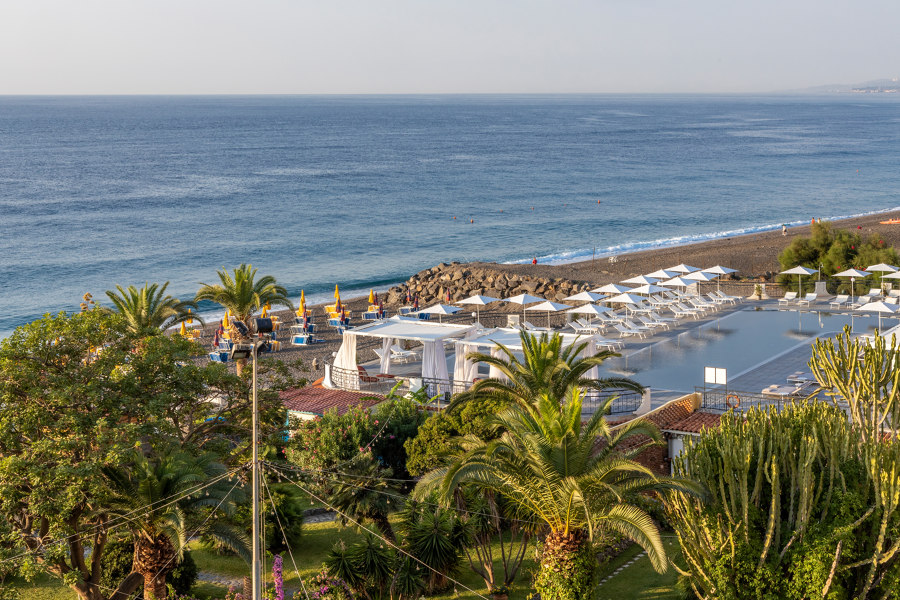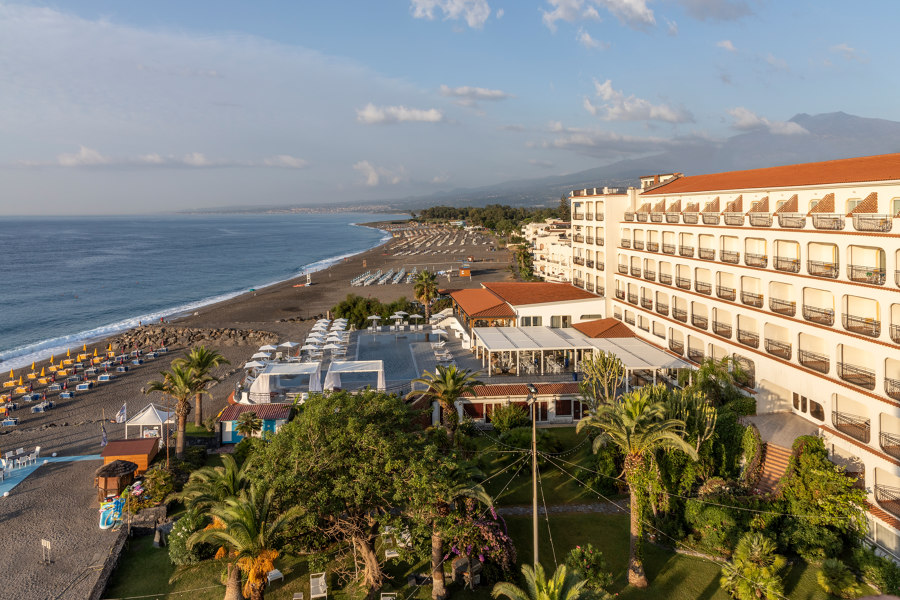The location
Giardini Naxos, founded in 734 BC by colonists from Chalcis in Euboea, and was the first Greek colony in Sicily. Ancient Naxos was destroyed in 403 BC, and the centre that rose in its place in the Middle Ages as a fishermen's village. In the late 19th century elegant villas were built, used as holiday mansions by the upper classes.
The Greek heritage that remains in Sicily can be seen in the architecture of a few very important buildings. The Temple of Concordia, located in Agrigento, is the largest in Sicily and one of the most well-preserved Doric temples in the world. It is today a popular seaside-resort, that can be reached in less than one hour from Fontana Rossa airport in Catania, offering more than 40 hotels, and a great number of vacation homes.
A blend of Greek, Latin, Aragonese, Arabic, Lombardic and Norman-French, Sicilian can be said to be a language rather than a dialect of Italian. Throughout the year the island plays host to numerous artistic, cultural, and religious events. Sicilians love a celebration.
Every town or village has a patron saint and commemorates their name day with parades, fireworks, eating and drinking. Many more annual festivities revolve around local food and harvests such as sausages in Caccamo or pistachios in Bronte.
Opera and classical music are also well represented in Sicily. Palermo boasts the largest opera house in Italy, The Teatro Massimo. While the magnificent Taormina Greek Theatre, with Mount Etna as a backdrop, has an impressive summer schedule.
Sicily is undoubtably famous for its vibrant folk arts and crafts. Taking inspiration from rich history and brightly coloured fruits and surroundings Sicily has a number of unique crafts to explore for culture-oriented visitors. One of the best-known symbols of Sicilian folk iconography is carretto siciliano. The cart was a means of transport that combined functionality with the telling of stories and tales, serving as a kind of wandering picture book that variously depicted historical, literary, religious, or chivalrous events.
The ancient Phoenicians and Greeks brought their artisanal traditions to the island, creating amphorae, kraters, kylixes, and other typical ancient wares and the technique of laying bright, saturated colors have been introduced into Sicily during the Muslim conquest.
The fashion house of Dolce & Gabbana put Sicily on the fashionista map and spread the island’s crafts worldwide by incorporating iconic Sicilian images in its bold prints like the colorfully decorated horse cart, ripe lemons and oranges.
This was an early inspiration for the interior design concept created for the hotel by THDP, a London based interior designer and architectural practice with a team of 50% British and 50% Italian designers. In addition to the studio founders: Nicholas J Hickson and Manuela Mannino.
The Hotel
The hotel is beachfront and from all the common areas windows the view is always toward the sea. The building presents most of the room facing the sea allowing the Mediterranean light to enter from the big windows and the guest can enjoy the salty air from the guestroom balcony.
The hotel was (and still is )one of the most important and famous hospitality building which has hosted generation of tourists attracting people from all over the world. It sits at the feet of Etna volcano and near to Taormina.
Detailed local research guided the narrative of the entire concept project, commencing with the refurbishment of the main public areas, lobby and lobby bar, guest check in, Restaurants Panarea & Sciara, and creating a new Pool Terrace and Fluido bar.
The concept
The interior design concept was inspired by the natural beauty of the volcanic beaches, the sea, mount Etna’s super-natural presence and the features of the island of Sicily and the ambition was to bring them into the centre of the hotel. By adding local decoration, artworks and colors the goal was to add character, a deep sense of authenticity and a refined and resort-based palette of natural tones with touches of colors of the sea.
The lobby was a large open space of over 700sqm meters, previously decorated in a heavy baroque style, the concept from the outset was to re-activate this space, giving it a new heart and focal point – and to be appealing to both guests and to walk-in locals.
From the outset THDP considered adding a new lobby bar to the center of the space, being both a visual anchor but also dividing the space and making it feel more intimate. With the new layout smart workers and leisure guests can meet using a polyvalent area which can hosts all thanks to the different typology of seating. The style is elegant, Mediterranean with sea colors and Taormina’s stone colors melting indoor and outdoor color palette.
The reception has been inspired by the Sicilian attitude of welcoming and it has been translated in three large reception desks with dark grey lava top fabricated by Nero Sicilia, the feature rear wall is tiled with hand painted local tiles by La Fauci, the accent decorative lights are from Aromas del Camp and are of copper and rattan, thus from the very beginning of their journey the guest is surrounded by an authentic and local experience.
The restaurant Panarea has materials, features, and shapes that reminds guests of antique craftsmanship, incorporating hand painted tiles in the niches at the entrance with traditional motifs from La Fauci. The buffet area has screens featuring irregular but geometric shapes hanged from the ceilings that recall ancient Greek terracotta jars. The artisan tributes continue on the walls covered with a braided woven leather cowhide effect inspired by ancient Greek sandals.
La Sciara Restaurant’s design has been inspired by the existing wall covering of lava stone: the space has the darker tones echoing those of the Mount Etna volcano, the dark ominous stone is counterpointed by the vibrant blue and red glazing – recalling colors of the sea at night, foreboding, dark yet attractive and welcoming. The metalwork in the restaurant is a rich copper tone, accented by rich blue lacquers, and the table top feature rich glazed textures applied with glass onto the lava stone, all by Nero Sicilia. The entire space naturally calls to mind dining in a more elegant and finer restaurant.
Quintessenza Lobby Bar & Check-in
The new Quintessenza bar is the perfect place to enjoy a beverage with friends old and new in the heart of the lobby, directly next to the screened off guest lifts, the bar welcomes guests who wish to socialize. Both local wines, spirits as well as juices and coffee are all prepared to order in that unique Italian Style.
The bar utilizes local materials to create a new feature in the centre of the lobby space, the bar top from local company Nero Sicilia is a made from volcanic lava stone extracted from the quarries of mount Etna glazed in cracked white glass. The bar fluted and curved front is formed from woven faux leather by Natutex, the rear bar features antique mirror with the joinery finished in Italian Oak and Rattan.
The seating in the Quintessenza features two room divider style banquet seating, fitted with USB and power outlets it’s the perfect place to work and relax, the backs of the banquets are finished in woven faux leather by Naturtex. The bar offers a range of seating options from the bar stools facing the bar from Gervasoni to the lower relaxed armchairs are from Miniforms and Torre 1961. The tables and banquets were manufactured to THDP’s design by Riabita. The new highly decorative wall covering is by Janelli & Volpi.
The check in area has also been refurbished, with new desks, headings and rear artwork and tiling by La Fauci all custom designed by THDP.
The reception desks are finished in dark grey lava stone by Nero Sicilia, with a façade of woven faux leather by Naturtex adding warmth and texture, the fronts of the desks feature oak paneling mimicking the fluted effects of classical columns of the Temple of Concordia.
The desks feature a custom designed header paneling featuring arched panels with rattan inset into it with back lighting.
Panarea Restaurant
The Panarea Restaurant is the place in the morning for breakfast but easily converts during the day to host lunches, special events and dinner in the evening. The restaurant offers sweet and savory delights, in the evening guest can expect to embark on an unforgettable gastronomic journey. The layout of the restaurant focuses on the new buffet counters which are aligned to the show cooking area - allowing guest to admire the Chefs preparing their dishes to order.
The buffet counters are centered into the new restaurant and are closable during evening set up and special events with a custom designed screening. The buffet counters feature built in an invisible heating and cooling elements which allow all the dishes to be moved around and swapped around to offer maximum flexibility to the hotel. During events the buffet counters can be stripped back and closed off - giving the restaurant less of a ‘breakfast’ space feel and more of a space for fine dining.
The new seating offers relaxed arrangements with a mix of table sizes, featured in fabrics reflecting the colours of the sea, visible from the restaurant. THDP also designed high tables, which can be used in the morning for breakfast to display local pastries and in the evening a high table dining experience. The adjustable tables made by Riabita, who also carefully prepared all custom furniture for the project and project managed their execution on site.
The custom designed carpeting by THDP is made by Ulster Carpets, the ceiling lighting are re-purposed light fittings from a hotel in Milan owned by the client – made in Murano.
La Sciara Restaurant
The word “Sciara” is a local term, used in Sicily in the Etna area to indicate the accumulations of volcanic ‘waste’ that form on the surface or on the sides of the mountain. The term gives it name to the fine dining restaurant at the hotel, where the interior concept is intense and reflects power and wonder of the volcanoes spilling lava – dark intense with touches of blue & red.
The walls were finished with rough hewn lava stones, giving a raw and natural feel, to compliment this toughness the seating by contrast is curved and flowing and features 4 signature tables finished in enameled lava stone by Nero Sicilia, the booths too are curved and help give the restaurant a centering. There are screenings in copper tones which feature so the design of super scaled rattan, adding a sense of privacy whilst not robbing the restaurant of its sea and pool views. The flooring is stained Natural Oak laid in a herringbone design by Havwoods. The copper-colored feature lighting is from Utu, the hexagonal mirrors by Sovet.
La Sciara is a perfect location to enjoy life’s special moments with great Italian food, to taste the authentic traditional Sicilian flavors, the chef relies upon only top-quality ingredients which are always locally sourced where possible. The restaurant has a long wine list of carefully selected local wines are featured in their own display wall. The restaurant offers lunch and dinner but can also serve during special events, in the evening guest can expect to embark on an unforgettable gastronomic journey. The presence of an open show-cooking showcase allows guest to admire the Chefs preparing their dishes. The menu’ comprehends a large variety of seafood including an interesting raw fish list, all fresh fished from the sea in front of the hotel.
The bar, show kitchen and wine display area were all uplifted, with lava stone from Nero Sicilia used for both the bar top and front, and in a glazed motif for the tabletops. Outside the restaurant is a terrace and the Fluido Pool Bar.
Design team:
ТHDP, London + Italy
Project team Eloisa Ronchi, Daniele Farshadfar, Simone Bretti, Marcello Acquati.
Architecture: Architecna Engineering Messina
Engineering company: Artelia group – ing. Angela Tortorella
Project management: Colliers Real Estate Management Services
Assistance Procurement: THDP
General Manager: Patrizia Candela
